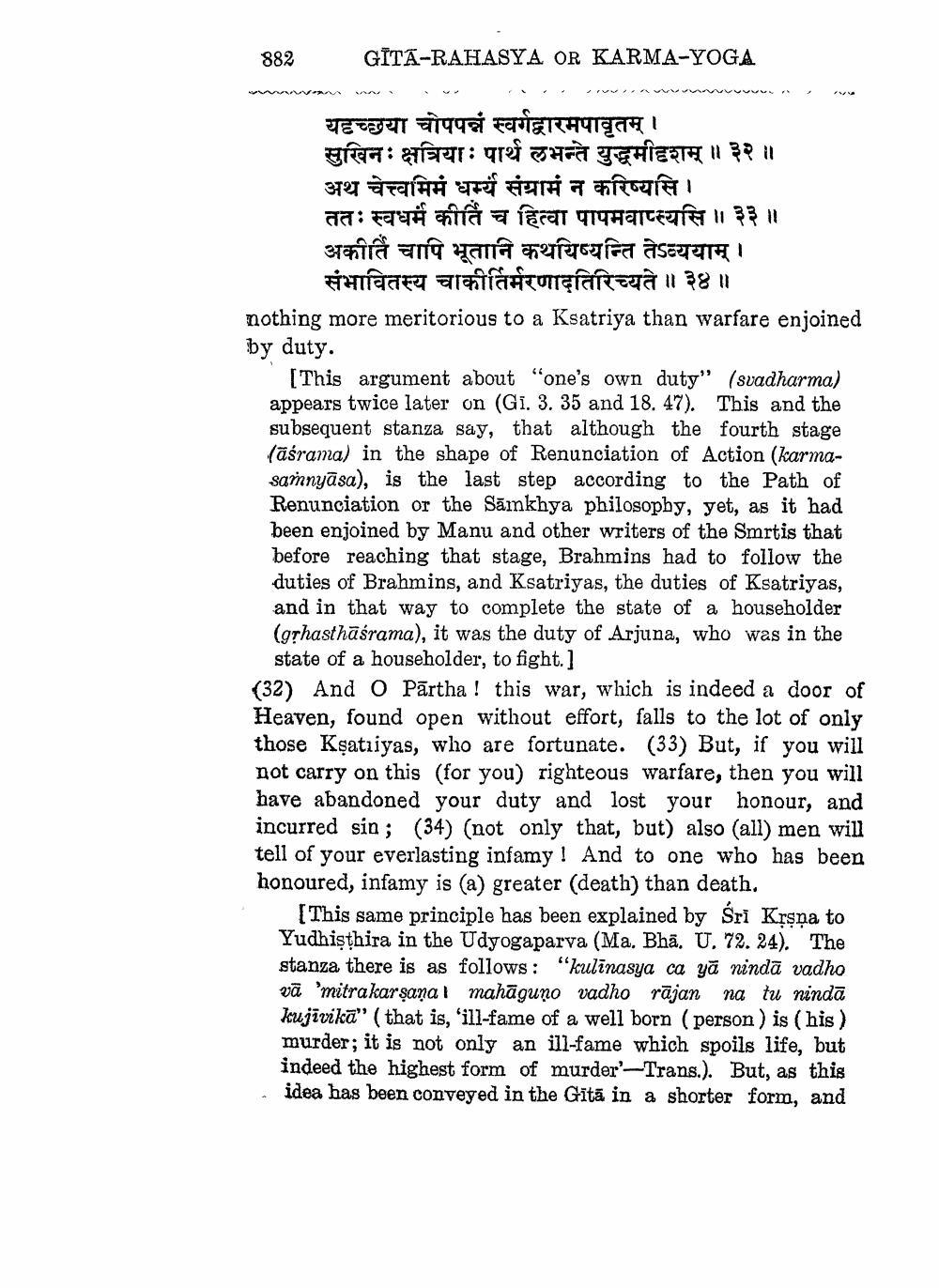________________
882
GITA-RAHASYA OR KARMA-YOGA
यदृच्छया चोपपन्नं स्वर्गद्वारमपावृतम् । सुखिनः क्षत्रियाः पार्थ लभन्ते युद्धमीदृशम् ॥ ३२ ॥ अथ चेत्त्वमिमं धर्य संग्रामं न करिष्यसि। ततः स्वधर्म कीर्ति च हित्वा पापमवाप्स्यसि ॥ ३३ ॥ अकीर्ति चापि भूतानि कथयिष्यन्ति तेऽव्ययाम् ।
संभावितस्य चाकीर्तिमरणादतिरिच्यते ॥ ३४॥ nothing more meritorious to a Ksatriya than warfare enjoined by duty.
[This argument about "one's own duty” (svadharma) appears twice later on (Gi. 3. 35 and 18. 47). This and the subsequent stanza say, that although the fourth stage (aśrama) in the shape of Renunciation of Action (karmasamnyāsa), is the last step according to the Path of Renunciation or the Sāmkhya philosophy, yet, as it had been enjoined by Manu and other writers of the Smrtis that before reaching that stage, Brahmins had to follow the duties of Brahmins, and Ksatriyas, the duties of Ksatriyas, and in that way to complete the state of a householder (grhasthāśrama), it was the duty of Arjuna, who was in the
state of a householder, to fight.] (32) And OPārtha ! this war, which is indeed a door of Heaven, found open without effort, falls to the lot of only those Kşatıiyas, who are fortunate. (33) But, if you will not carry on this (for you) righteous warfare, then you will have abandoned your duty and lost your honour, and incurred sin; (34) (not only that, but) also (all) men will tell of your everlasting infamy! And to one who has been honoured, infamy is (a) greater (death) than death.
[This same principle has been explained by Śrī Krsna to Yudhisthira in the Udyogaparva (Ma. Bhā. U. 72. 24). The stanza there is as follows: "kulīnasya ca yā nindā vadho vā 'mitrakarsanal mahāguņo vadho rājan na tu ninda kujivika" (that is, 'ill-fame of a well born (person) is (his) murder; it is not only an ill-fame which spoils life, but indeed the highest form of murder-Trans.). But, as this idea has been conveyed in the Gītā in a shorter form, and




